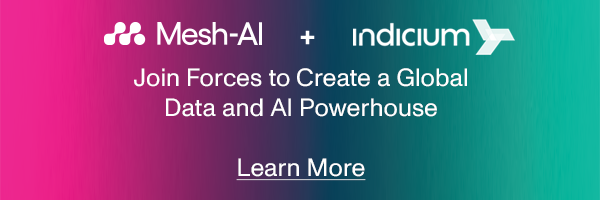


I had the pleasure of joining a panel of industry leaders from Northern Trust, BNP Paribas, Wells Fargo and Royal London Asset Management on data governance at this year's FIMA London.
We discussed how organisations across the financial services spectrum can rethink their approach, moving from traditional centralised governance to modern federated approach. There was broad agreement that a modern approach puts insurers, banks and asset managers in a stronger position to tackle data quality issues and capitalise on AI.
The FS landscape faces a constant stream of regulations, and the landscape is forever shifting.
With a push towards more frequent regulatory compliance, organisations will ultimately need to strive for real-time compliance. This is already the case for some and at Mesh-AI we’ve had success with clients reaching real-time DORA compliance in innovative ways, linking regulatory requirements to people, process and technology using graph digital twin technology and Generative AI.
In the age of AI, we’re giving more powerful tools to users and if you don’t enable but block, people will find ways around with more significant consequences because the tools are more powerful. With the pace of innovation increasing, enabling self-service in a secured way where users only see the data they are authorised to is essential; of course, this also calls for some flexibility to enable experimentation which can be done in sandbox environments, using obfuscated or LLM-generated synthetic data for instance.
“If you want to enable innovation, you need more flexibility.”
Traditional ways of managing data in a centralised fashion, with tight controls owned by a single team and centralised on a monolithic platform are a thing of the past. On the other hand, fully decentralised handling of data poses challenges for large organisations. Whilst it promotes innovation at pace, it is often siloed and lacks interoperability and cohesion. This creates issues for compliance and keeping costs in check.
The panel was in broad agreement that federation is the only way to keep up with the needs of the business - it’s the Goldilocks zone for data. One with shared norms and processes but decentralised data ownership. It promotes accountability, sustainability, interoperability, autonomy, agility, and literacy. Implementing a federated model enables organisations to operate at scale, with agility and cohesion.
“We’re seeing teams are now able to reduce processes by days.” Lynn Watts, Royal London Asset Management
Data quality and usage are in a virtuous circle: the clearer the use, the better the outcome. Our own research identified data quality as the top barrier to AI adoption.
The scale, complexity and diversity of data sources compounds the issue. A federated approach to governance, promoting ownership and accountability, means data is treated as its own product, and looked after so quality increases. The more access there is to data, the easier it is to spot quality issues and apply the necessary fixes.
Making data a part of the culture and increasing the accessibility of data exposes people to things they haven’t seen before. This in turn uphills the workforce and opens another door to further innovation.
There was an interesting question about the risk of self service. When you democratise access to data, you have to let people work with and use the data, and while there is of course some risk, this builds literacy. By making data part of the culture and pursuing a federated model, you can reduce this risk.
“Data governance implies it’s a risk that needs to be managed.”
The last question from the crowd was quite provocative but triggered passionate reactions from the panel: it is clear that data governance has a PR problem. The term implies data is a risky asset to be managed and not an enabler. As leaders, we have a responsibility to rethink data governance to be at the forefront of innovation and enablement to ultimately demonstrate its value to the business.
My fellow panellist Rickie Glasgow from Northern Trust agreed, “We’re not the sales prevention police - but you can’t put a price on the reputational damage of sensitive data being released.”
